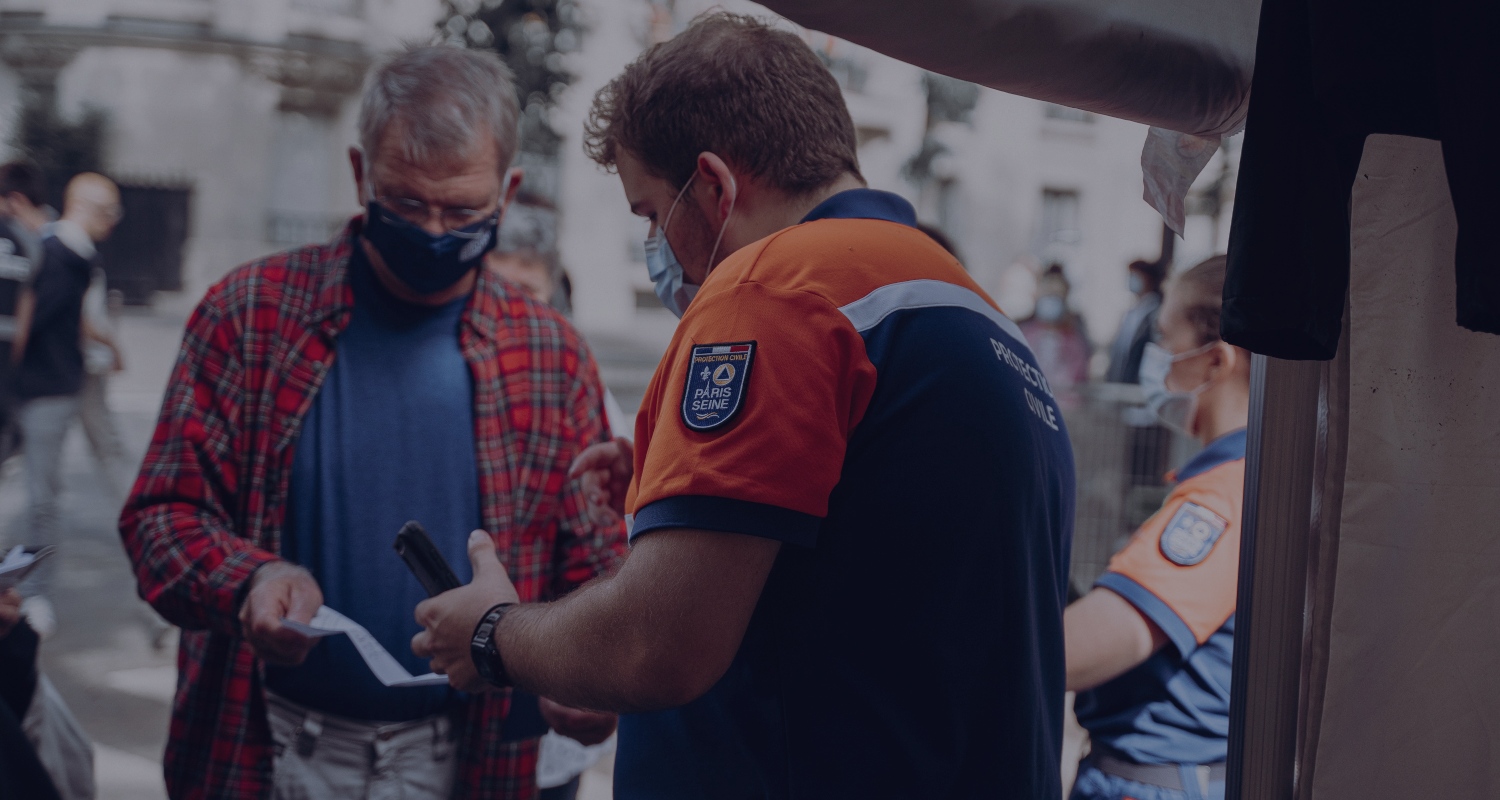I am not a conspiracy theorist. Conspiracies largely revolve around the assumption that a group of powerful people, working in complete secrecy, have a master plan to deceive us. Almost without exception, I reject conspiracy theories simply because I do not think people are smart enough, or coordinated enough to pull them off. In other words, and with specific application to the Covid-19 pandemic, I do not think there is a master plan, devised by officials, to lead the world astray. But I do know this: every area of life has a spiritual element to it, and we are in a spiritual battle all the time (Eph. 6:12)! There are no spiritually-neutral decisions. Even mathematics assumes an intellectual and arguably moral premise that there is such a category as “correct” and “incorrect”. And even if it could be shown that mathematics was morally neutral, its conclusions for economics and science are not neutral because these disciplines either benefit or destroy human lives.
The Destroyer and the Healer
In this spiritually-charged world, the Devil hates your guts (1 Pet. 5:8) and will do and use every means possible to confuse and delude people. He will try to convince you that the world is spiritually neutral and that you should trust in benevolent kings and rulers (Ps. 20:7). He will use their ignorance to deceive you, even when they see themselves as wise, skilled, charitable, loving, or selfless.
At the same time, God is at work and firmly seated on his throne. He will use rulers to guide and protect us (Ps. 21:1; Rom. 13:1), and will at other times permit their evil deeds (think: Pharaoh, Manasseh, Nebuchaddnezzar, the caesars and more). And so, while I largely reject mass human conspiracies, I affirm that a spiritual battle is before us.
In social order, that means that all human disciplines including (but not limited to) medicine, economics, science, computer technology, and sociology are laced with moral/spiritual implications. If you blindly “trust the experts”, and the experts are deluded by the Enemy, filled with sin, or without a discernible moral compass, you run the risk of endorsing decisions that have morally catastrophic implications. Likewise, when you quickly dismiss the experts as corrupt and thoroughly untrustworthy, you may fail to see God guiding them for the common good.
If you blindly “trust the experts”, and the experts are deluded by the Enemy, filled with sin, or without a discernible moral compass, you run the risk of endorsing decisions that have morally catastrophic implications. Likewise, when you quickly dismiss the experts as corrupt and thoroughly untrustworthy, you may fail to see God guiding them for the common good.
Growing in Discernment
When asked to trust the experts, we must prayerfully and biblically discern the moral undercurrents in the decisions being made by officials. Am I being deceived by Satan or blessed and/or instructed by God? Ask moral questions of the mandates being presented to you. Consider the moral implications of the advice you receive. Evaluate your emotional response to crises through Scriptural teaching.
This crisis requires that we relentlessly ask many moral and theological questions. When decisions are made in areas of medicine, economics, science, computer technology, and sociology they automatically trigger moral and theological questions.
30 Questions Worth Asking:
1/ What is the value of human life and what is our theology of death?
2/ How do we care for our neighbour and where do our responsibilities end?
3/ What does it mean to honour authority?
4/ How do we weigh moral absolutes if faced with two choices, both of which endanger life?
5/ What is God teaching us and is this a judgement upon the nations?
6/ How do these events fit biblical eschatology?
7/ How can a church be a church without meeting?
8/ Is it just to limit human civil freedoms and to what degree?
9/ What does the Bible say about nationhood vs. globalism?
10/ What is God’s perspective on bankruptcy, and indebtedness to the government?
11/ Is render-to-Caesar an absolute statement without checks and balances?
12/ What does it mean, and is it moral for a nation to show corporate solidarity?
13/ How do we respond to those who conscientiously object to vaccines?
14/ How do we discern between science and scientism?
15/ Who do we obey if moral experts disagree with medical experts?
16/ What does it mean to be a relational being in isolation?
17/ How do we serve those too sick or disabled to utilize technology to connect with others?
18/ Is it ever right to permit the death of some to save others?
19/ What are the limits of the growing call to teamwork and national unity?
20/ What is a hero and what does it mean to be courageous?
21/ What if our new reliance on technology to do ministry leads to increased censorship?
22/ Have we become too reliant on the state or are we too self-reliant?
23/ What is our theology of emotions (fear, anxiety, etc.) in crisis and what role does faith play?
24/ How do we maintain a view of divine sovereignty and yet act wisely and responsibly?
25/ Should the church have a voice in politics?
26/ How should marriages be solemnized at a time of social distancing?
27/ How should the Lord’s Table be honoured when the people of God cannot meet?
28/ What boundaries should be placed on medical life-support systems?
29/ Is “getting back to normal” even right in light of the corruption in our world?
30/ Are there lessons to be learned about family structure (i.e. the value of time together, the trend to place the elderly in nursing homes, how we school our children) that need to change as we move forward?
Our answers to these questions, and many others, determine whether or not we should trust the experts, reject their decisions, or land somewhere in the middle. As we exercise biblically-informed discernment, may we have the spirit of the men of Issachar, who are described in the Bible as “men who had understanding of the times, to know what Israel ought to do…” (1 Chron. 12:32).





